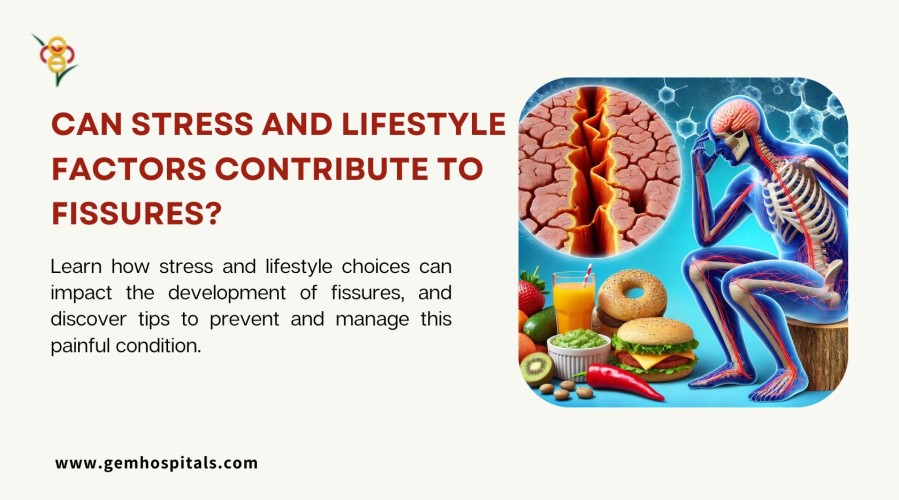Learn effective solutions for digestive problems with expert tips to improve gut health, reduce discomfort, and maintain a healthy digestive system.
Can Stress and Lifestyle Factors Contribute to Fissures?

In our fast-paced world, stress and lifestyle choices often take a toll on our health in ways we might not fully realize. One such underrated health issue is fissures. Through this article, let’s dive into how everyday stress and your lifestyle can impact your body and potentially lead to fissures.
Understanding Fissures: What Are They?
Fissures are small tears in the thin, moist tissue that lines the anus. They can cause significant discomfort, pain during bowel movements, and even bleeding. While they may seem minor, the pain and irritation can be quite severe.
The Role of Stress in Causing Fissures
Stress can wreak havoc on the body in numerous ways, and its impact on digestive health is particularly significant. High stress levels can lead to:
- Tightening of the anal sphincter: This makes bowel movements more difficult and increases the risk of tears.
- Altered digestion: Stress can slow down digestive processes, leading to constipation. Harder stools can strain the anal region, contributing to fissures.
Lifestyle Choices That Can Lead to Fissures
It’s not just stress; lifestyle factors play a crucial role too. Here are some habits that might be putting you at risk:
- Dietary Habits: Low fiber intake can lead to constipation, which is a leading cause of fissures. Processed foods, low hydration, and excessive caffeine or alcohol can exacerbate this issue.
- Physical Inactivity: A sedentary lifestyle leads to weaker abdominal muscles and poor bowel movements, increasing the risk of constipation and fissures.
How to Mitigate the Risk
Changing certain habits can significantly reduce the risk of developing fissures:
- Manage Stress: Techniques like yoga, meditation, and regular exercise can help manage stress.
- Improve Your Diet: Incorporating a high-fiber diet and drinking plenty of water can soften stools and promote regular bowel movements.
- Stay Active: Regular physical activity helps strengthen the abdominal muscles, supporting better digestion.
If you suspect that stress and lifestyle factors are contributing to anal fissures, it’s essential not to ignore the signs. Persistent pain during bowel movements, blood on toilet tissue, and anal discomfort are all indicators that it’s time to consult a specialist.
Schedule Your Appointment Today
Don’t let the discomfort of fissures take over your life. At GEM Hospital, our specialists are ready to provide you with comprehensive care tailored to your needs. Schedule an appointment today to discuss your symptoms and explore treatment options that work for you. Let’s take the first step towards a healthier, more comfortable life.
Blogs & Article
Explore current research trends in digestive health, including new treatments, advanced diagnostics, and innovations improving gut health and patient care.
Discover common digestive health myths and the real facts. Learn simple tips to improve gut health and maintain better digestion for a healthier life.


